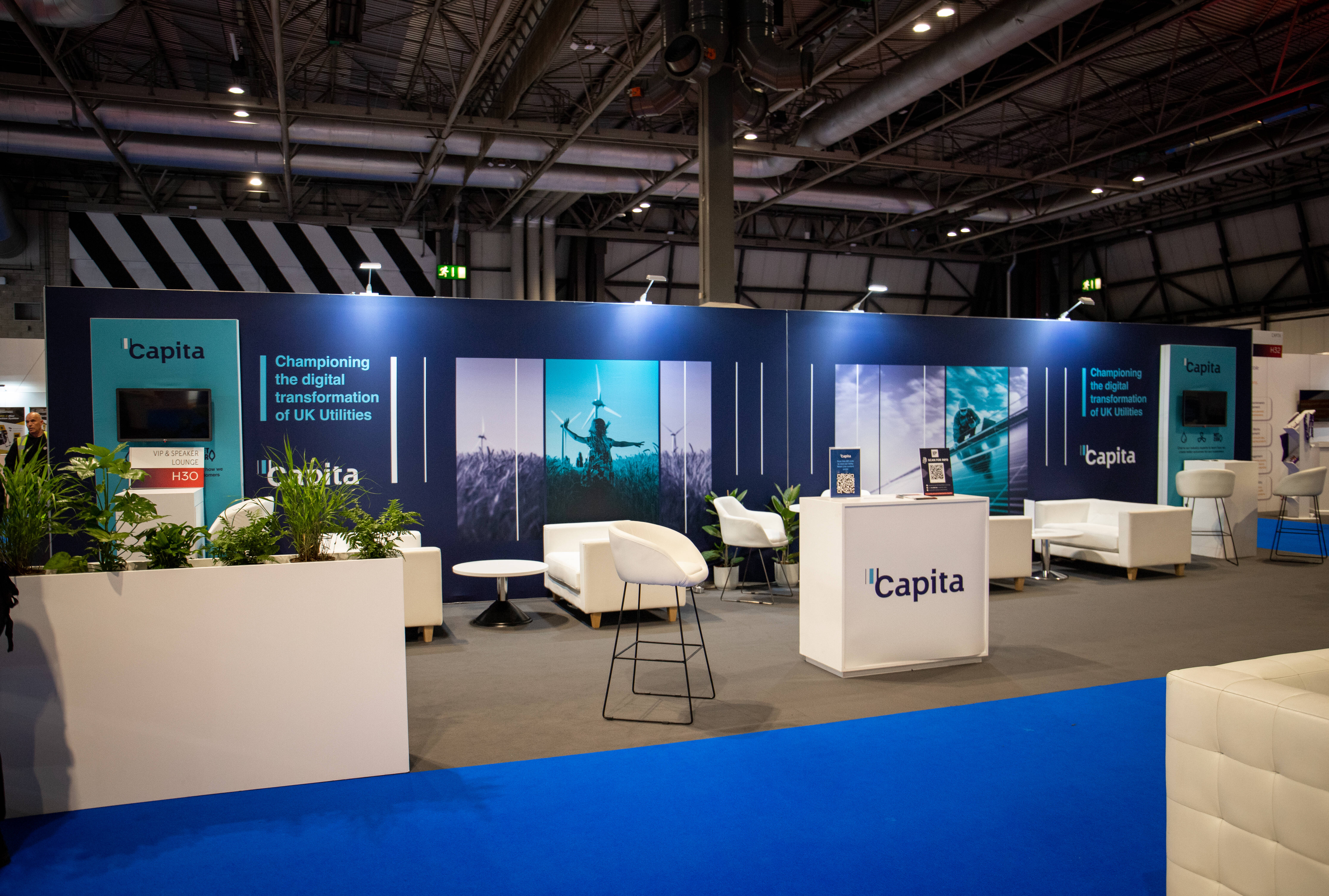You’ve reached your limit!
To continue enjoying Utility Week Innovate, brought to you in association with Utility Week Live or gain unlimited Utility Week site access choose the option that applies to you below:
Register to access Utility Week Innovate
- Get the latest insight on frontline business challenges
- Receive specialist sector newsletters to keep you informed
- Access our Utility Week Innovate content for free
- Join us in bringing collaborative innovation to life at Utility Week Live

 “My agents need three things – to be human, to be positive, to be brave,” says Christopher Dalley, back office, asset management and revenue operations director at EDF, explaining his company’s approaching to supporting vulnerable customers through the cost of living crisis, at a roundtable on the topic held at this year’s Utility Week Live in association with headline sponsor Capita.
“My agents need three things – to be human, to be positive, to be brave,” says Christopher Dalley, back office, asset management and revenue operations director at EDF, explaining his company’s approaching to supporting vulnerable customers through the cost of living crisis, at a roundtable on the topic held at this year’s Utility Week Live in association with headline sponsor Capita.
Being brave may entail difficult conversations as customer service agents encourage customers to find sustainable solutions to affordability issues that are not going to go away any time soon – but better this, says Dalley, than offer short term solutions which find customers back in trouble a few months down the line.
 It’s a thoughtful approach to the cost of living crisis, which was high on the agenda at Utility Week Live, with representatives of Octopus, British Gas, EDF, Southern Water, Anglian Water and Affinity Water joining UWL and Capita’s innovation and data science director Alan Linter for the debate. There was no doubt customers are experiencing “poverty – not fuel poverty,” as EDF’s head of external affairs Brian Tilley put it, and the industry must step up in response.
It’s a thoughtful approach to the cost of living crisis, which was high on the agenda at Utility Week Live, with representatives of Octopus, British Gas, EDF, Southern Water, Anglian Water and Affinity Water joining UWL and Capita’s innovation and data science director Alan Linter for the debate. There was no doubt customers are experiencing “poverty – not fuel poverty,” as EDF’s head of external affairs Brian Tilley put it, and the industry must step up in response.
For Dalley, this means not shying away from those tough conversations, particularly in light of the further rise in energy costs expected in October. Other responses on the table include EDF’s proposal for a range of government reforms – “we’re calling consistently for targeted support for vulnerable customers,” said Tilley, listing several asks of ministers: an increase in the Warm Homes Discount, for green lives to move from the energy bill to general taxation; for VAT on fuel to be frozen for 12 months; and for a social tariff for energy.
 In addition to the policy considerations, there are a range of operational implications for companies looking to support vulnerable customers through increasingly difficult times. As Capita’s Linter points out, “the messaging to customers has changed very substantially – people are experiencing vulnerability for the first time.” He adds that with more sophisticated vulnerability definitions and segmentations than ever before, Capita has technology that offers ‘digital empathy’, encouraging users to stay on digital channels even for difficult conversations and responding appropriately, using tools such as real time speech analytics. The technology also knows to refer to a human agent when appropriate. In line with this, British Gas, represented by energy customer journey director Laura Millard, explained how they were attempting to keep customers on digital channels wherever appropriate, providing a “scaled service” to allow high touch human intervention where required.
In addition to the policy considerations, there are a range of operational implications for companies looking to support vulnerable customers through increasingly difficult times. As Capita’s Linter points out, “the messaging to customers has changed very substantially – people are experiencing vulnerability for the first time.” He adds that with more sophisticated vulnerability definitions and segmentations than ever before, Capita has technology that offers ‘digital empathy’, encouraging users to stay on digital channels even for difficult conversations and responding appropriately, using tools such as real time speech analytics. The technology also knows to refer to a human agent when appropriate. In line with this, British Gas, represented by energy customer journey director Laura Millard, explained how they were attempting to keep customers on digital channels wherever appropriate, providing a “scaled service” to allow high touch human intervention where required.
Millard added that British Gas was exploring innovate solutions such as cashback for loyal customers, to help ease the pain of the current and expected price rises.
 For all the companies represented at the roundtable, net zero remained high on the agenda – and a ‘just transition’ that includes vulnerable customers and those with affordability issues was critical. For Octopus’s director of economics and regulation, Rachel Fletcher, this represents more of an opportunity than a challenge. She believes energy companies have a huge role to play in helping customers drive down their energy use and in future, should be “competing vigorously” on this point – rather than on price.
For all the companies represented at the roundtable, net zero remained high on the agenda – and a ‘just transition’ that includes vulnerable customers and those with affordability issues was critical. For Octopus’s director of economics and regulation, Rachel Fletcher, this represents more of an opportunity than a challenge. She believes energy companies have a huge role to play in helping customers drive down their energy use and in future, should be “competing vigorously” on this point – rather than on price.
Many voices around the table agreed that a social tariff should be introduced for energy, as in water, and that the ECO scheme should be expanded to take in net zero. As Tilley put it: “We are using our voice to push for changes that are going to help customers in the longer term. No one really knows where energy prices are going to go over the next few years – it’s important we push on with plans for the ECO schemes, moving green levies, and looking at how to get to net zero as cheaply [for customers] as possible.”
- For the latest insight on vulnerable customers, attend Utility Week’s Consumer Vulnerability & Debt conference, taking place in Birmingham on 13 September 2022.

Please login or Register to leave a comment.